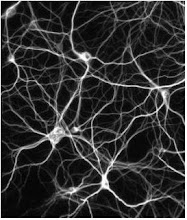This is mostly verbatim from my notebook. I like what I was thinking today, and I'm going to put it down see if it still makes sense, and perhaps expand.
"When my head's alright my world isn't. I've made the observation before, but never in quite so succinct a form. I know reasons and effects. I know most of the whys and the how's but still the phenomenon baffles me.
those times when something makes logical sense, but still eats at ones centre, are when one turns to philosophical thought. That by itself is an interesting observation. Wittgenstein thought that logic and language failed once one got to metaphysics. Those most important of questions were either false, or encompassed by the bounds of language.
I'm so tied into my English speaking world. Language is one of the places I feel comfortable. Music, Language, and the mind. it is disheartening to think that any of my three primary refuges are unable to fulfil my needs.
I often make up for the failings of my mind, and now the failings of language, with the realm of music. this may be a back door.
Of course you could consider music as language the way Wittgenstein thought of language, a relflection of the underlying laws of the world, and so only able to express things encompassed therein.
I'm not sure that's right though.
It is said "when words fail, music speaks" There are things that "a love supreme" (by John Coltrane) says which cannot be wholly expressed in words, or any language.
When we are infants we can hear and discern all of the sounds a human could make. Sounds only in Hindi can be discriminated only by people exposed to them in their infancy. We lose this capacity as we grow in our native tongue (or tongues) this ability to hear all, this connection to some sort of oneness of humanity, it is where we have yet to be sullied by the firm rules of our mother tongues. Getting back to this state is where music comes in.
Music is where we overcome that adherence to the rules of language. Strict semanticity is not necessary in music.
A B flat doesn't mean anything, it's just a B flat. We can make music that doesn't follow the rules and it will still be music.
Theory describes music but does not determine it.
So from all of this it is natural to ask the question 'what are the limits of music'
any sound can be music. If it can be heard it can be musical. The revving of a car engine has a pitch and a tone, and can be thought of as just another instrument. The sound of the wind through the trees, or the sound of the woods in "silence" (because true silence exists only in a vacuum) sound is everywhere.
SO what effect does the removing of traditional semanticity and representation do to the experssive abilities of music?
Wittgenstein describes these things most people have experienced but which do not fit into the actual use of language. Being absolutely safe is his most potent example.
To quote from "A Lecture on Ethics"
"Now the same applies to the other experience which I have mentioned, the experience of absolute safety. We all know what it means in ordinary life to be safe. I am safe in my room, when I cannot be run over by and omnibus. I am safe if I have had whooping cough and cannot therefore get it again. To be safe essentially means that it is physically impossible that certain things should happen to me and therefore it's nonsense to say that I am safe whatever happens. Again this is a misuse of the word"
However many people can attest to the feeling of absolute safety. The feeling exists, and so there is a possibility that the state exists as well.
Music can portray that in an accurate way which is not simile. The ability of music to show without using metaphor or simile is something I don't think can be found in other communicative systems.
I'm not certain of this, but if there is any representative of the metaphysical which can be invoked without sullying the purity of the metaphysical it is music.
No other realm can so wholly describe an experience. People associate songs with different things, and asses their quality or personal interest differently, but songs which tap into some fundamental truth are always able to be seen as such.
Whether or not one liked John Coltrane's free period, one was forced to see the visceral nature of them. The Openness, minor chaos, and unboundedness impress themselves upon one regardless of ones opinion of the pieces. Different interpretation does not dismiss the truth of the musical statement. The song is what it is regardless of the observers' position."
SO there was the thought. Clearly the words don't fully describe the idea. That's part of the point. My words cannot fully describe anything but the world on which their structure is based. Music is the only form of expression with which I can say what I mean, while not using simile. Or at least it is the closest way to get there that I've yet found.
Subscribe to:
Post Comments (Atom)

1 comment:
BP's are highly creative and we do tend to show our expression through music, art, and writing.
Great post and very insightful.
Post a Comment